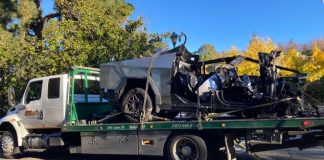Perhaps the most stressful thing about taking a car in for service is not the prospect of a big bill – it’s the prospect of being taken for a ride.
How can you reduce your odds of paying too much – or paying for a repair your car doesn’t need at all? Here are some tips from the inside; things the guy behind the counter might tell you off the record:
* Always get a second opinion –
As with shopping for a car, rush decisions when it comes to authorizing repair work can come back to haunt you – especially if your car has developed a sudden problem and you feel panicky about getting it fixed as soon as possible. That can lead to a hasty decision – and possibly, paying too much. A dishonest shop may even try to play on your fears by over-stating the dangers of not getting the car fixed “right away.” It may be that the car does need work; but don’t let yourself be pressured into anything. A hard sell is often a dishonest sell.
Getting a second opinion before you authorize any work will protect your interests in two ways:
First, if both shops independently agree on the nature of the problem, you can feel pretty confident that the problem has been identified correctly.
On the other hand, if one shop tells you the car needs the entire transmission replaced while the other says the problem is a minor electronic glitch, you may have just dodged a massive rip-off. It might be time for a third opinion!
The other upshot to getting a second estimate is you’ll get a better feel for what constitutes a fair price for the work. If the second shop’s quote is much higher, you can go back to the first one – or ask the second shop why their estimate is so much higher.
If the estimates they give you are close to each other, that’s a good sign the price is probably fair.
* Pre-shop repair shops –
For the same reason it’s good to research the credentials and reputation of the doctor you’re about to trust with your physical health, it’s smart to research the credentials and check the reputation of a repair shop before you take your vehicle in to be worked on.
The two main things to look into are a history of consumer complaints (check with your local Better Business Bureau as well as the state/county office of consumer regulatory affairs) and whether the technicians are factory-authorized or Automotive Service Excellence (ASE) certified. Such technicians have undergone formal training and passed specific tests establishing their knowledge of your car’s various systems. This will decrease the odds of having your car worked on by someone who just keeps pulling parts – and handing you bills.
Most shops that employ ASE-certified techs will display the blue ASE symbol and the techs themselves will usually wear their ASE certification on their uniforms. (See http://www.ase.com/ for more information about ASE.) Dealerships that are factory certified will display this fact prominently, too. The upshot to factory-backed service is not just better odds that the person working on your car knows what he’s doing. If he doesn’t – or you have an issue – you can pursue it up the food chain to the manufacturer, who has a definite interest in making sure its dealerships and service people treat customers honestly.
It’s also a very good idea to ask current customers of the shop (or dealership) you’re thinking about taking your car to about their experiences. Most shops will have a waiting room and usually there are customers inside waiting to pick up their vehicle. You can casually ask them if they’re happy with the shop, the work done and so on. If people are unhappy they will usually be quite ready to tell you – and the reverse is just as true.
* Trust (but verify) –
It’s not unheard of for a dishonest shop to charge a customer for work they didn’t do – or for parts they didn’t replace. To guard against this, you can discreetly mark the part – for example, put a chalk mark on the left front tire if you’ve taken the car in to have all four tires rotated.
Then, when you pick your car up, you can check to see whether the shop actually did rotate your tires. Similarly, check the dipstick after an oil change to make sure you got what you paid for (fresh oil) and, if you can, mark the oil filter (before you go in for the oil change) so that you can be certain a new one was actually installed.
You may have heard people recommend asking to see the parts that have been replaced as evidence the work was actually done, but it’s not hard for a dishonest shop to just pick up an old part from the junk pile out back and present it to you.
The only way to be sure is to mark the part yourself – before it’s removed – then check to see whether the part you’re shown has that mark on it.
* Don’t accept “estimate overages” –
Your final bill should always be within 10 percent of the estimate; never tolerate a final repair bill that’s significantly higher than what you were quoted unless you specifically agreed to something after the estimate was written. It’s neither ethical nor (usually) legal for a shop to charge you for additional work you didn’t specifically authorize.
If you do receive a bill that’s significantly more than the original estimate, contest it.
If it’s a dealership, ask to speak with the service manager and if that doesn’t work, the owner of the store – and from there, complain directly to the affiliated automaker.
If it’s an independent shop, try the owner.
If you don’t reach an acceptable understanding, head straight for your local town/city’s government offices and lodge a complaint with the consumer protection department.
It may take a little time (and hassle) to get it all sorted out – but that’s preferable to paying too much, or paying for work you didn’t authorize.
Throw it in the Woods?










The best way to avoid “car repair ripoffs” is to actually have a relationship with your car shop. This might take some shopping at first, but when you find one you like, stick with it. Get your routine service done by a professional shop. In a real professional shop, the techs will use the correct oil and filter, not some cheap generic cr@p. They will learn YOUR car, and can alert you to up coming issues before they become expen$ive failures. I LIKE my customers. I want their automotive experience to be a good one. It matters to me that they leave happy. It matters even more that they stay happy and keep returning for years. They refer their friends to me, and I do not want to betray their trust. It is a relationship, and it is a two way thing. They respect me and my abilities, and I respect them . No good shop likes “on the fly “customers, people that might come for one repair and vanish forever, off to the next place…As a shop owner, I always wonder what I might have done wrong. I guess they are always adrift, always taking a chance on that next repair, and never settling in for the long term. Too bad for them.
Excellent advice! I live in small town and it’s hard for any local business to stay in business for long if they don’t provide good service at a far price. In more urban/suburban areas where it’s harder to know who’s good and who’s not, taking the time to get sort the good from the bad before you need a shop is definitely smart policy. Once you find a good shop, stick with them, too!
One good way not to get taken for a ride is to consult with members on this site before, during, and after a visit to the shop.